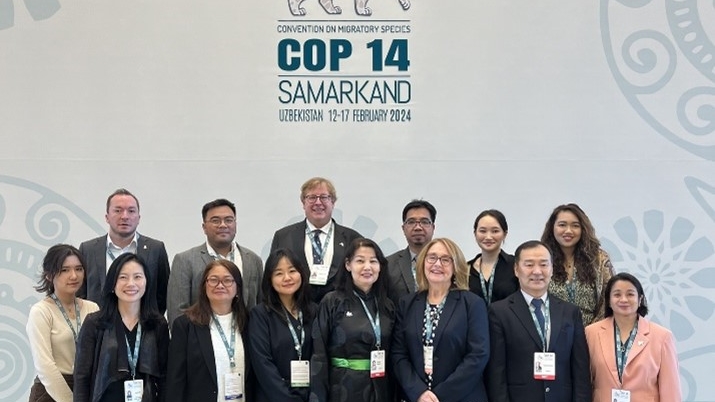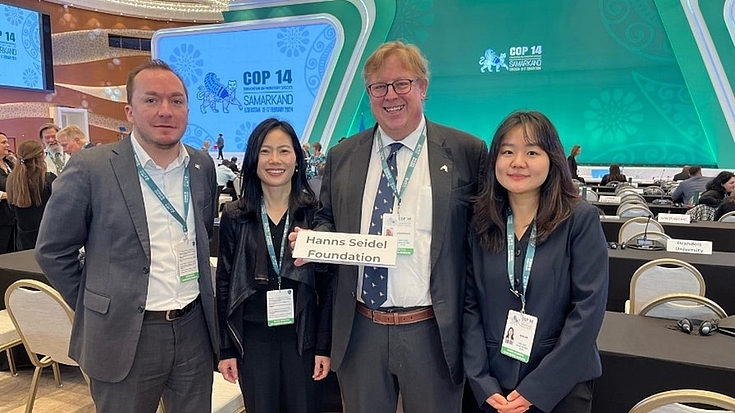Conference
Nature knows no borders- CMS COP14

The global environmental crisis affects not only humans but also animals. Especially migratory species. These animals rely not only on specific locations but also on their so-called migration routes, wintering, and summering grounds, as well as their resting places. Therefore, they are susceptible to habitat loss and other threats. Hence, from February 11 to 17, COP14 took place to discuss solutions for the protection of migratory species collectively.
Approximately 1300 researchers, conservationists, and government officials met in plenary sessions and a variety of working groups and side events to discuss the status and guidelines for the protection of migratory species and their habitats worldwide.
Due to involvement in the Central Asian Flyway (CAF) as part of the global climate project for Northeast and Central Asia, the HSF participated in the event for the first time, alongside representatives from Mongolia, Korea, and Central Asia.

The alliance of people for the protection of migratory birds encompasses many important aspects: preserving biodiversity, ensuring the well-being of local communities, and mitigating climate change.
Among the significant outcomes of COP14 are strengthened measures to combat the illegal and unsustainable removal of migratory species and new global guidelines addressing the impacts of light pollution on migratory species. Furthermore, the HSF was established as an important part of the CAF and its work on flyways. This was confirmed by the decision to accept Dr. Seliger and Dr. Choi as members of the CMS Flyways working group, which guarantees future cooperation with CMS.
